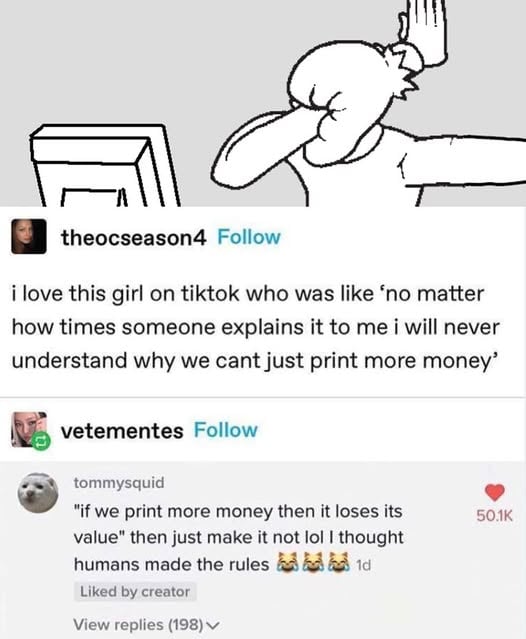this post was submitted on 08 Feb 2025
456 points (96.5% liked)
Curated Tumblr
4269 readers
43 users here now
For preserving the least toxic and most culturally relevant Tumblr heritage posts.
The best transcribed post each week will be pinned and receive a random bitmap of a trophy superimposed with the author's username and a personalized message. Here are some OCR tools to assist you in your endeavors:
-
FOSS Android Recs per u/[email protected]: 1 , 2
Don't be mean. I promise to do my best to judge that fairly.
founded 2 years ago
MODERATORS
you are viewing a single comment's thread
view the rest of the comments
view the rest of the comments

Thank you for your well-formulated argument.
However, i'm worried that it does not actually work that way. It is short-sighted and ignores second-round consequences.
For example, first of all, where do all these savings go to? They go to the rich, making the poor poorer. As such, if the government goes into debt instead of taxing the rich, it actually contributed through its inaction to make the poor poorer. The government should tax the rich instead of printing more money.
Secondly, if the government does print more money to rid itself of its debt (as you have rightfully suggested), that leads to hyperinflation, which mostly tolls the poor, because they have more difficulty stabilizing in a shaking environment that the big companies.
Thirdly, probably the government can print lots of money once to rid itself of the debt, but it can only do so once. Because once it has done so, people will assume "money has no value anyway, if it can just lose all its meaning overnight", and stop considering that money as valuable in the first place. Therefore, that is the end of paper money. What do you do then?